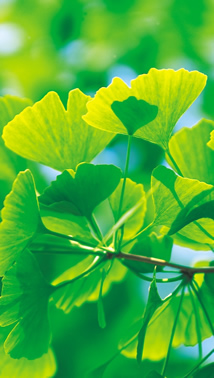Mar 8 2005
 The use of herbal supplements in women is increasing. Many mothers may also be giving herbal supplements to their children to treat or prevent various illnesses, including asthma, hyperactivity, colds, and respiratory infections.
The use of herbal supplements in women is increasing. Many mothers may also be giving herbal supplements to their children to treat or prevent various illnesses, including asthma, hyperactivity, colds, and respiratory infections.
A study in the March issue of The Journal of Pediatrics reviews the medical literature to provide information about the effectiveness of some of the most common herbal supplements in children, including Andrographis paniculata, evening primrose oil, ivy leaf, and valerian.
Gail Mahady, Ph.D. and colleagues from Karl-Franzens-Universitaet Graz and the University of Illinois reviewed studies published 1960-2003 that tested the effectiveness of common herbal supplements. Unfortunately, many popular herbal supplements have not been evaluated in systematic studies. Insufficient data were found for the pediatric uses of chamomile, feverfew, ginger, and ginko. However, useful information was found and assessed for various other herbal supplements.
Andrographis paniculata is an important therapeutic plant in Chinese and Ayurvedic medicine for the common cold, flu, and other respiratory infections. One study evaluated children who were given A. paniculata supplements for three months. Although no evidence of the supplement's effect was observed in the first two months, a 70% reduction in the number of colds was seen in the third month. Studies of A. paniculata have shown that it may also reduce the risk of upper respiratory infections.
Evening primrose oil is derived from the seeds of the American wildflower and is commonly used for skin disorders, premenstrual syndrome, and arthritis because of its high concentration of essential fatty acids. Results of studies have suggested that evening primrose oil supplements may significantly improve the severity of dermatitis in children. Evening primrose oil supplements may also be associated with an improvement in performing certain tasks by children who are hyperactive.
Ivy leaf is the dried leaf of Hedera helix L., which is native to Europe and Asia. Studies have suggested that ivy leaf may improve airway resistance in children with asthma. Cough tablets with dried ivy leaf may be effective in decreasing the symptoms of chronic bronchitis in children. One-third of the children receiving ivy leaf reported freedom from bronchitis symptoms.
Valerian is the most widely recognized herbal sedative and has been used for children with hyperactivity and sleep disorders. One study assessed valerian's effect on boys with developmental deficiencies and hyperactivity problems. After the children were given nightly doses for 2 weeks, they experienced an increase in total sleep time and sleep quality.
In spite of growing popularity, Dr. Mahady was unable to find sufficient scientific evidence in pediatric studies for the effectiveness of cranberry juice/supplements for urinary tract infections, garlic for cardiovascular problems, and Echinacea for colds. Dr. Mahady explains that "as more children become exposed to botanical dietary supplements (herbal medicines), it is important that the safety and efficacy of these alternative treatments be established." Although some herbal supplements have shown promise for treating various illnesses, they may have not been appropriately tested; some may even be harmful or cause interactions with other therapies. Parents and guardians should consult with their pediatricians before administering any herbal supplement to children.